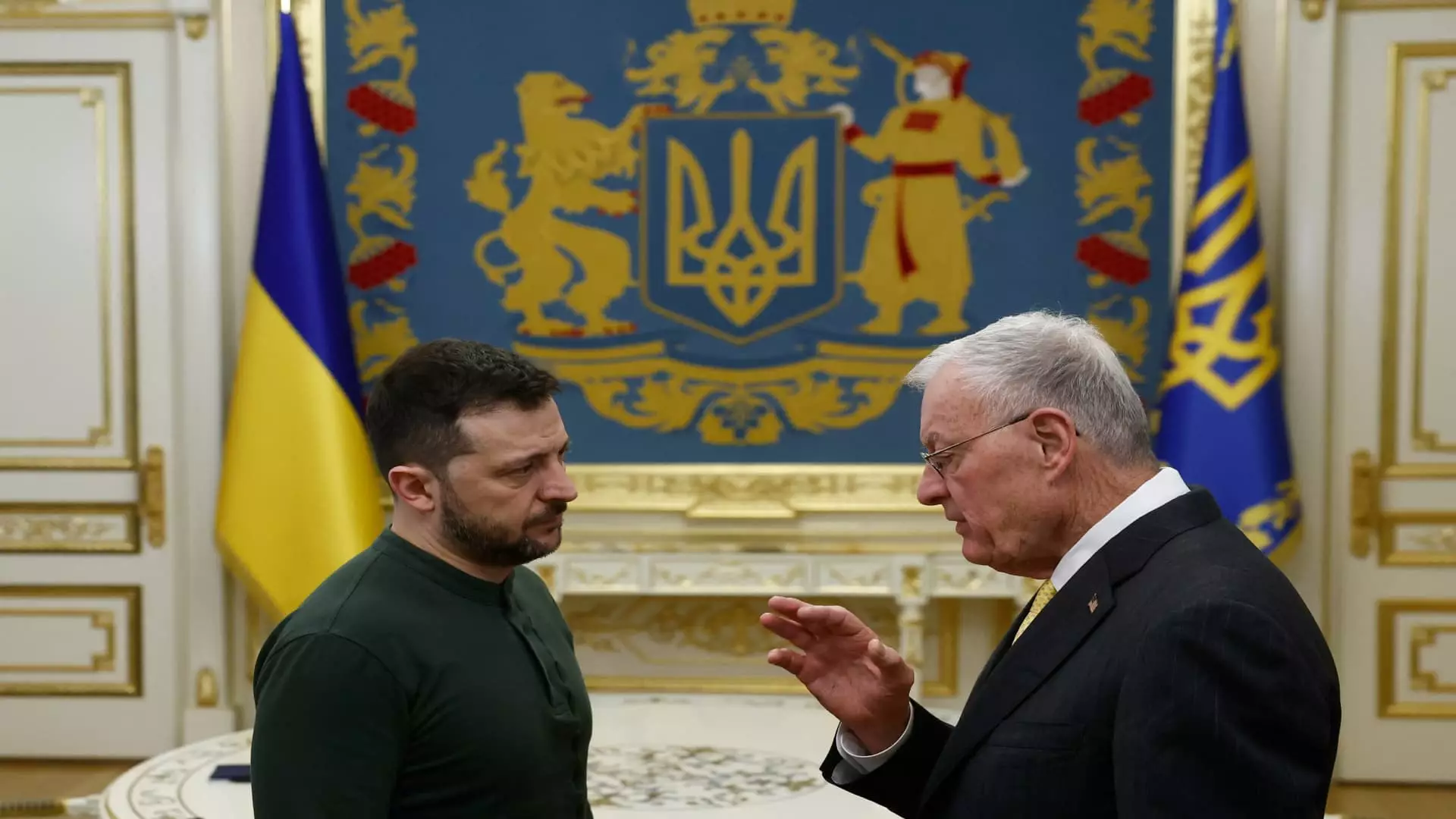The ongoing conflict in Ukraine has not only disrupted lives but also redefined the geopolitical landscape in various dimensions. One of the most critical aspects of Ukraine’s battle is its reliance on technology to maintain military efficiency and communication lines. The U.S. negotiations focusing on Ukraine’s critical minerals highlight a significant game of chess playing out on the global stage, where access to resources is intertwined with vital technological support. The potential ramifications of restricting access to the Starlink satellite internet system, owned by Elon Musk’s SpaceX, introduce another layer of complexity to an already fraught relationship.
Starlink: A Lifeline in Crisis
Since the onset of Russia’s invasion in February 2022, Starlink has emerged as an indispensable tool for the Ukrainian military. Providing reliable internet connectivity in a war-torn environment, it enables communication, coordination, and operational effectiveness. The assessment that “Ukraine runs on Starlink” underscores the extent to which this technology serves as a backbone for the country’s military activities. The choice made by U.S. negotiators to leverage Ukraine’s access to Starlink as a bargaining chip raises serious ethical questions regarding the terms under which military aid and technological support are provided.
Reports indicate that U.S. officials are taking a hardline stance on negotiations related to Ukraine’s critical minerals, such as graphite and titanium, which are crucial for both military and industrial applications. This “take it or leave it” approach becomes concerning, especially after Ukrainian President Volodymyr Zelenskiy rejected a proposal that would provide U.S. firms with half of Ukraine’s mineral wealth in exchange for wartime aid. The negotiation dynamics showcase a rift between understanding the urgency of Ukraine’s need for military support and the economic interests perceived by U.S. leadership.
The proposal by U.S. Treasury Secretary Scott Bessent was reportedly dismissed by Zelenskiy partly due to a lack of specific security guarantees from Washington. This presents a dilemma: how can Ukraine protect its sovereignty while being pressed to give up valuable resources in a moment of existential crisis? As the stakes get higher, the relationships between world powers and the values they hold dear face a critical test.
Experts are acutely aware of the consequences of any disruption to Starlink services. Melinda Haring from the Atlantic Council highlights how essential Starlink is for drone operations, a strategy that has contributed to Ukraine achieving a near parity with Russia in terms of drone usage and artillery capabilities. The interruption of this technology could yield catastrophic results for Ukraine’s military operations, potentially tipping the balance in favor of Russian forces.
As tensions point toward possible service shut-offs, questions arise regarding the morality of using technology as leverage in negotiations. Critics may argue that undermining Ukraine’s primary means of communication not only jeopardizes its military effectiveness but also its democratic values amidst a brutal invasion.
Divisions Among U.S. Lawmakers
The ongoing negotiations and divisive stance among U.S. lawmakers about the endgame for Ukraine complicate the situation further. Some legislators advocate a rapid resolution to the conflict, while others call for sustained support for Ukraine’s resistance against aggression. Calls for investment in Ukraine’s mineral reserves are fraught with geopolitical implications, since reliance on these resources can also shift power dynamics within the U.S. and beyond.
Ultimately, the negotiation surrounding Ukraine’s critical minerals and access to technology like Starlink points to a broader metaphor for the tension between power, control, and self-determination. How the U.S. navigates these negotiations can either bolster a battered ally or risk exacerbating the situation, leaving Ukraine vulnerable at the hands of both external aggression and internal strife.
The interplay between Ukraine’s critical resources and its technological support highlights not just a struggle for survival but also a larger story of trust, resilience, and the complexity of modern diplomacy. As negotiations unfold, the outcomes will not only shape Ukraine’s future but could also serve as a case study for how nations navigate the confluence of military, economic, and technological interests on the global stage.


Leave a Reply